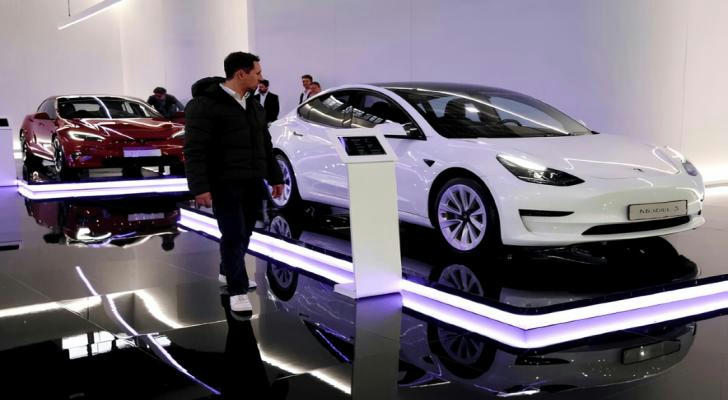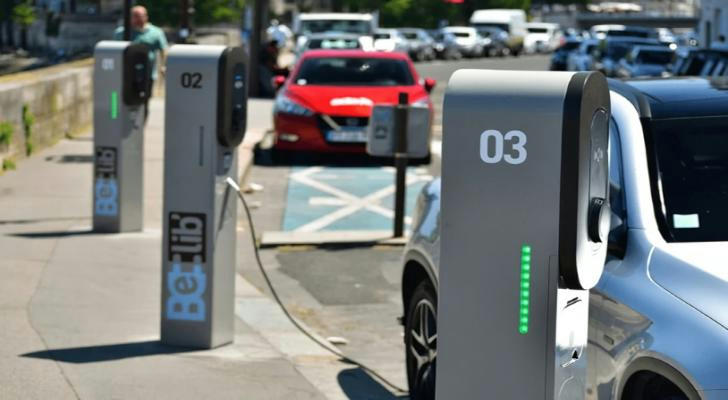European Electric Vehicle Market Becomes New Engine of Global Economic Development

Globally, the popularity of electric vehicles (EVs) is growing at an alarming rate. In Europe, this trend is particularly significant, and the European market has become an important engine for the development of global EVs. In 2024, the sales volume of European electric vehicles exceeded 2 million units, marking the huge potential and growth of this market.
Overview of the European Electric Vehicle Market
The European electric vehicle market has experienced significant growth in recent years. According to the latest data, the sales volume of electric vehicles in Europe in 2024 has accounted for more than 20% of the entire automobile market. Major market countries such as Germany, France, Norway and the Netherlands have played a key role in this growth. Germany, as the largest automobile market in Europe, has reached about 700,000 electric vehicle sales in 2024. France follows closely with sales of about 500,000 vehicles. The Netherlands has maintained steady growth through a sound charging infrastructure and incentive policies. Policy support and regulations
Policy support and regulations
European governments have played a vital role in promoting the popularity of electric vehicles. Many countries have introduced generous car purchase subsidies and tax incentives to encourage consumers to choose electric vehicles. In addition, the European Commission plans to halve automobile emissions by 2030 and promote a complete ban on the sale of fuel vehicles by 2035.
The strict implementation of environmental regulations has also accelerated the popularity of electric vehicles. The EU has introduced a series of emission standards and imposed strict carbon emission restrictions on automakers. With the increasing global climate change, reducing greenhouse gas emissions has become a common goal of all countries.
1.Germany: Tax relief and infrastructure construction
Germany is one of the largest automobile markets in Europe, so its electric vehicle policy has an important demonstration effect. Before 2023, Germany provided relatively generous subsidy policies, such as subsidies of up to 9,000 euros for pure electric vehicles for individual consumers, and tax relief policies for corporate car buyers. In addition, electric vehicle owners can also enjoy a maximum of 10 years of road tax exemption, which plays a positive role in reducing long-term vehicle costs. In order to promote the popularity of electric vehicles, Germany is also investing heavily in charging infrastructure and providing subsidies to car owners who install home charging piles.
2.France: Subsidy policy is in a leading position in Europe
The French government's subsidy policy for electric vehicles is in a leading position in Europe. Subsidies in France provide consumers with very attractive incentives to buy electric vehicles. In 2023, France announced that it would increase the ecological bonus from 6,000 euros to 7,000 euros for electric vehicles priced below 47,000 euros. If consumers scrap old gasoline or diesel vehicles, they can also receive an additional subsidy of up to 5,000 euros. In addition to direct subsidies, France also protects the interests of electric vehicle users by stabilizing electricity prices. Ensure that the charging costs of electric vehicles at public charging stations remain at a reasonable level.
Electric vehicle technology and innovation
The continuous advancement of electric vehicle technology is another important factor in its rapid development. In recent years, battery technology has made significant breakthroughs, and the endurance of electric vehicles has been greatly improved. Modern electric vehicles are generally equipped with a range of more than 500 kilometers, which makes long-distance travel possible. At the same time, the charging speed has also been improved. The popularization of fast charging technology has greatly shortened the charging time and solved the user's endurance anxiety.
In addition to battery technology, electric vehicles have also made breakthroughs in intelligence. Take Tesla as an example, its autonomous driving technology has become an industry benchmark. Tesla's fully autonomous driving system improves driving safety while also improving the user's driving experience. In addition, the electric heavy-duty trucks launched by Swedish electric truck company Volvo are changing the face of the logistics industry, marking the expansion of the application of electric vehicle technology in various fields.

When it comes to buying and selling used cars, some people caution against trusting used car dealers or intermediaries, believing that dealing with private sellers or acquaintances is safer. However, this notion is not always accurate.
Consumer and market response
European consumers have a positive attitude towards electric vehicles. According to a report by the International Energy Agency (IEA), global electric vehicle sales will exceed 10 million in 2022, an increase of more than 60% over the previous year. According to the survey, most consumers recognize the environmental performance and long-term economic benefits of electric vehicles. Especially in the context of rising fuel prices, the economic advantages of electric vehicles are more prominent. Government subsidies and preferential policies have also reduced consumers' car purchase costs, further promoting the sales of electric vehicles.
Market competition is also intensifying. In addition to traditional car companies such as Tesla, BMW and Mercedes-Benz, many emerging companies such as Rivian and NIO are also actively entering the European market. These emerging companies have seized market share through innovative models and competitive prices. The improvement of localized production and after-sales service has also become an important factor in attracting consumers.
As a resident living in Germany, I recently bought an electric car and was quite touched by its daily use experience. As the main country in the European electric vehicle market, Germany has become more and more friendly to the use of electric vehicles, especially driven by government policies and environmental awareness.
One of the biggest advantages of electric vehicles is its environmental performance. The advantages of low emissions and zero tailpipe emissions are particularly obvious. In addition, there is almost no engine noise during the driving of electric vehicles, which brings a quiet driving experience, which not only makes me feel comfortable as a driver, but also benefits passengers and pedestrians around me.
The acceleration performance of electric vehicles is unexpectedly good. Unlike traditional gasoline vehicles, electric vehicles do not need to rely on complex gearboxes and can provide strong power in an instant. Even on the highway, you can feel the smooth acceleration and good control of the electric motor. This makes the driving experience very smooth, especially when driving short distances in the city, you can hardly feel the lag of the vehicle.
In the process of buying a car, the German government provides some very attractive policies. For example, electric vehicles can be exempted from road tax for up to 10 years after registration, which is particularly cost-effective in high-tax countries such as Germany. For company car purchases, the company car tax for electric vehicles is halved, which has also become an important reason for many corporate employees to choose electric vehicles.
Germany's charging infrastructure is developing rapidly. In my city, almost every major supermarket, shopping mall and public parking lot is equipped with a charging station, and many places also provide free or discounted charging services. In the process of installing a charging pile in my garage, the government also provided some subsidies to reduce the installation cost. In addition, many applications can help me find nearby charging stations in real time, which is very convenient for planning travel routes.
In the future, I expect that with the advancement of technology and the optimization of policies, electric vehicles will be more integrated into our daily lives and bring us a greener and more efficient way of transportation.

Challenges and Future Outlook
The European electric vehicle market is in rapid development. Policy support, technological innovation and increased consumer acceptance have jointly promoted the growth of this market. Looking ahead, with the further improvement of technology and policies, electric vehicles will occupy a more important position in the European market and set an example for the development of global electric travel. I expect that with the advancement of technology and the optimization of policies, electric vehicles will be more integrated into our daily lives and bring us a greener and more efficient way of transportation.
